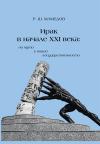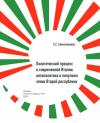Six Criteria for Military Intervention: Proportional Means and Reasonable Prospect
Вход
Авторизуйтесь, если вы уже зарегистрированы
In this entry I explore fourth and fifth criteria for military intervention, which are to determine whether the international community can supply adequate means and whether the intervention can bring more good than harm.
4 and 5 Criteria: Proportional means and reasonable prospect
Proportional means and reasonable prospect are intertwined ideas that can be looked at together. Reasonable prospect means that after intervention the situation in the country must be better than if the intervention never took place. The success of the operation can most likely be assured if the intervening force has proportional means – meaning that it dominates the local force – and if a clear mandate is combined with a strong strategy.
The amount of personnel on the ground, their military equipment, and training should be adequate to match the scale of the crisis. It is the case that well-equipped and professionally trained peacekeepers that outnumber the opposition will have better chances of challenging local forces. At the same time the intervening force must not be excessive – intervention is different from full scale war. Proportional means would put a constraint on the use of force, which should be minimized during humanitarian interventions.
Coupled with proportional means, a clear mandate authorized by the UN Security Council containing detailed instructions on what exactly can and cannot be done on the ground will manage the expectations of all parties to the conflict, reduce criticism, and assure more support among UN Member States. Governments that contribute their forces to an operation will have a better idea of what personnel to send and will be more cooperative once they know what to expect on the ground.

Recent events highlight the importance of having a clear mandate. During voting on resolution 1973 on Libya, Russia remarked that the resolution didn’t provide any clarity on how the no-fly zone would be enforced, the rules of engagement, and what limits on the use of force there would be.[1] As a result, both Russia and China abstained from voting on this resolution, which was adopted. During the operation the alliance then morphed the original mission of saving civilians into one of a bringing about a regime change. The operation in Libya thus exceeded its mandate and the norm of the responsibility to protect was damaged in the eyes of some nations, including China and Russia. This is partly responsible for the failure on the part of the Security Council to take any decisive actions on Syria – Russia now suspects Western nations of pushing their own geopolitical agendas in Syria. Such excess of UN mandate as in Libya might have jeopardized the concept of the responsibility to protect and pushed more countries away from arriving at a solid agreement on the practical implementations of military interventions.
Additionally, having a clear mandate helps to manage the expectations of the local population. When UN peacemakers usually arrive at an arena of conflict with a pledge to bring peace, the local population sees them as saviors and places high hopes on them. After this point any discussion about a lack of resources, insufficient funding, poorly trained personnel and limited mandate is seen as a letdown. Communicating a clear mandate to the local population from the beginning will help alleviate this situation.
The key factor to success in military intervention is having a coherent strategy. It is a powerful tool in linking proportional means to achieving humanitarian ends. To develop a coherent strategy much factual and verifiable information about the situation on the ground needs to be gathered.
Proportional means, a clear mandate and a coherent strategy are elements that can have a significant influence over the outcome of a military intervention. If these elements are missing the humanitarian intervention could waste lives and enormous resources, and even further aggravate situation on the ground.
[1] U.N. Security Council, 6498 th meeting. Verbatim record (S/PV.6498). 17 March 2011. http://daccess-dds-ny.un.org/doc/UNDOC/PRO/N11/267/18/PDF/N1126718.pdf?OpenElement (Accessed 22 October 2012).




